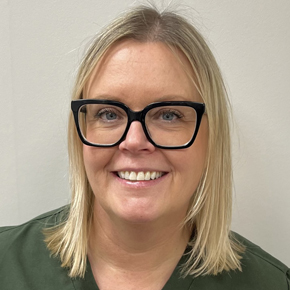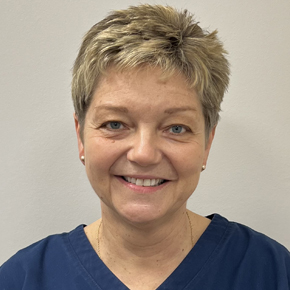Dental hygiene is an imperative part of your dental health routine and we believe it is never too early or too late in life to begin caring for your teeth. Good dental hygiene will help you to prevent decay, gum disease and tooth loss.
There is now increasing evidence to link gum disease with heart disease and strokes. It is also the main reason for the loss of teeth and we take the treatment of gum disease very seriously.
"Every trip here has been an extremely pleasant experience! Stuart is fantastic and one of the nicest dentists I've ever been to. Ruth the hygienist is also very friendly and my teeth have never looked so clean!"

Our dental hygienists uses preventative, educational and therapeutic methods to help prevent oral diseases whilst helping our patients to achieve and maintain good oral health. They will work with you to determine the best oral hygiene routine for your individual needs. Our dental hygienists has three main roles within the practice:
Our Leeds City Dentalcare Hygienists play an important role in your ongoing dental programme.
Our Leeds City Dentalcare Hygienists play an important role in your ongoing dental programme.They will advise you of the best and most effective ways to clean & floss your teeth. During your visit, our dental hygienists may scale & polish your teeth using the latest, most comfortable techniques, and will assist you in preventing dental problems, helping you to maintain fresh breath & a healthy, happy smile.

Kerry graduated at Leeds University where she was awarded the Best Clinical Skills of the Year Award. She joined us here at Leeds City Dentalcare in 2001 as our full-time hygienist. Kerry helps to ensure that all our patients benefit from the best advice and treatment available, working closely with each of our dentists. When she is not at work she likes to paint, loves watching movies, and enjoys the inevitable shopping!

After graduating from University Hospital of Wales, Cardiff, Ruth returned home to West Yorkshire to work part-time in the Community Dental Service (Leeds) working with children and part-time in General Dental Practice in Halifax, working predominantly in the NHS.
After having her daughter, she went on to work part-time in order to combine work with being a mum.
As her daughter was growing up Ruth worked full-time for 17 years in the private sector and recently joined Leeds City Dentalcare June 2022 part-time, giving her chance to enjoy activities outside work and still enjoy being a member of the dental team.
Ruth gets a great sense of achievement when "making a difference" by educating and motivating patients in order to improve their oral hygiene and maintain a healthy mouth.
Outside work she enjoys entertaining friends, spending time with her family (not forgetting her cat, Tilly) as well as good food and drink, winter skiing holidays and countryside walks.

After graduating from University Hospital of Wales, Cardiff, Ruth returned home to West Yorkshire to work part-time in the Community Dental Service (Leeds) working with children and part-time in General Dental Practice in Halifax, working predominantly in the NHS.
After having her daughter, she went on to work part-time in order to combine work with being a mum.
As her daughter was growing up Ruth worked full-time for 17 years in the private sector and recently joined Leeds City Dentalcare June 2022 part-time, giving her chance to enjoy activities outside work and still enjoy being a member of the dental team.
Ruth gets a great sense of achievement when "making a difference" by educating and motivating patients in order to improve their oral hygiene and maintain a healthy mouth.
Outside work she enjoys entertaining friends, spending time with her family (not forgetting her cat, Tilly) as well as good food and drink, winter skiing holidays and countryside walks.

Hi, I’m Bethany and I originally grew up in Newcastle Upon Tyne. I completed my BSc in Dental Hygiene and Therapy from the University of Birmingham in 2022. I continued to practice there until I relocated to Leeds and joined the team here at Leeds City DentalCare. I also completed further training in Facial Aesthetics covering all aspects of anti-wrinkle treatments and the use of Dermal Fillers for the face.
I have a keen interest in both preventing and managing gum disease. I like to ensure to educate my patients with the right instructions to improve their oral hygiene. I am passionate about Facial Aesthetics, and gain great satisfaction by being able to enhance a person’s self-esteem and confidence by carefully employing these techniques.
Outside of work I mostly enjoy spending time with my friends and family, eating lots of good food, and taking long walks in the countryside. I spend a lot of my free time in the gym, attempting to stay strong and healthy!
Visiting the hygienist on a regular basis is an essential part of maintaining good oral health. A qualified dental hygienists can provide a range of treatments to help keep your teeth and gums healthy. By having your plaque and tartar professionally removed, you can avoid the build-up of bacteria in hard-to-reach places which can cause cavities, gum disease and other conditions.
In addition to removing plaque and tartar, your hygienist can also brighten up your smile with scaling and polishing techniques. Plus, they can give you tailored advice on how to look after your teeth properly at home with the right diet and regime for maintaining good oral hygiene. By visiting a hygienist regularly you can ensure that your teeth remain healthy, clean and free from decay or disease.
The frequency of dental hygiene visits is based on individual needs and can vary from every 3 to 12 months. Discussing your unique oral health needs with your dentist or hygienist is important. If you have good oral health, preventive visits may be as infrequent as once a year. However, if you are prone to cavities or gum disease, more frequent cleanings may be recommended.
Your visit to the dental hygienists will usually start with an examination of your teeth and gums, followed by a professional cleaning. During the cleaning, your hygienist will use special tools to remove plaque and tartar that has built up on your teeth. This can help reduce the risk of decay, gum disease, and other oral health issues. After the cleaning, your hygienist may also polish your teeth and provide you with advice on how to keep your mouth healthy at home.
Dental hygienists are trained to perform a range of treatments including scaling and polishing, deep cleaning and root planing, fluoride treatments, and tartar control. They can also provide advice on how to brush and floss correctly, dietary recommendations, and preventive treatments such as sealants or mouthguard.
Good oral hygiene habits are essential to maintaining healthy teeth and gums. Brushing twice a day with fluoride toothpaste, flossing once a day and rinsing with mouthwash are all important parts of an effective dental health routine. Regular brushing removes plaque and food debris that can cause tooth decay and gum disease, while flossing between your teeth helps remove food particles that can get stuck in tight spaces which a toothbrush can't reach. Rinsing with an antiseptic mouthwash helps reduce bacteria levels in the mouth for fresh breath and also reduces the risk of gum disease.
Interdental brushes are designed to get into the tight spaces between your teeth and help remove plaque and food particles that can accumulate in these areas. Using an interdental brush regularly helps reduce the risk of cavities, gum disease, and bad breath. It's important to choose the right size for your teeth so it can effectively clean the hard-to-reach areas between your teeth.






Stay connected with us on Instagram to discover the latest practice news and explore our stunning cases.
FOLLOW US
Leeds City Dentalcare
159 Beeston Road, Leeds LS11 6AW
| Monday | 8:00 am - 5:00 pm |
| Tuesday | 8:00 am - 5:30 pm |
| Wednesday | 8:00 am - 5:00 pm |
| Thursday | 8:30 am - 6:00 pm |
| Friday | 8:00 am - 4:00 pm |